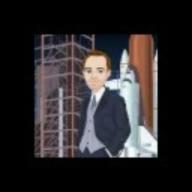What do scientists think will happen a few seconds before the big crunch?
2017-03-23 6:07 am
回答 (3)
2017-03-23 9:16 am
✔ 最佳答案
The "Big Crunch" hypothesis fell out of favor roughly 10 years ago.It was assumed (some time ago) that the rate of expansion was being slowed down by the universe's own gravity; the big question was to determine if the mass density of the universe was sufficient to stop expansion and eventually cause a compression of space, all the way to the Big Cruch (the reverse of the Planck Time in the Big Bang theory).
However, in the early 2000s, more detailed observations showed that the rate of expansion is actually increasing. Clearly there is "something" that counters the effect of gravity (at least, when it comes to the behaviour of space itself). This is called "Dark Energy", where the word "dark" means unknown.
IF (this is a big if) the rate of expansion continues to increase, then the Big Crunch is impossible. Instead, the universe will end in an eternal "Big Rip", where the expansion of space will (after gazillion years) rip everything apart, including individual atoms, individual particle, etc., until only photons of ever-decreasing energy are left.
Even without the Big Rip, the observations make it clear that gravity will not be enough to stop expansion and cause the collapse that will lead to the Big Crunch.
2017-03-23 6:11 am
With the expansion now appearing to be accelerating... the 'big crunch' doesn't look like it's going to happen.
2017-03-23 6:10 am
The big bang doesn't exist. It's a theory made up by people you've never met based on ZERO evidence. How can you believe something that has no evidence supporting it? Do your own research and tests instead of believing everything a "Scientist" tells you.
收錄日期: 2021-04-24 00:25:21
原文連結 [永久失效]:
https://hk.answers.yahoo.com/question/index?qid=20170322220733AADPrTI

